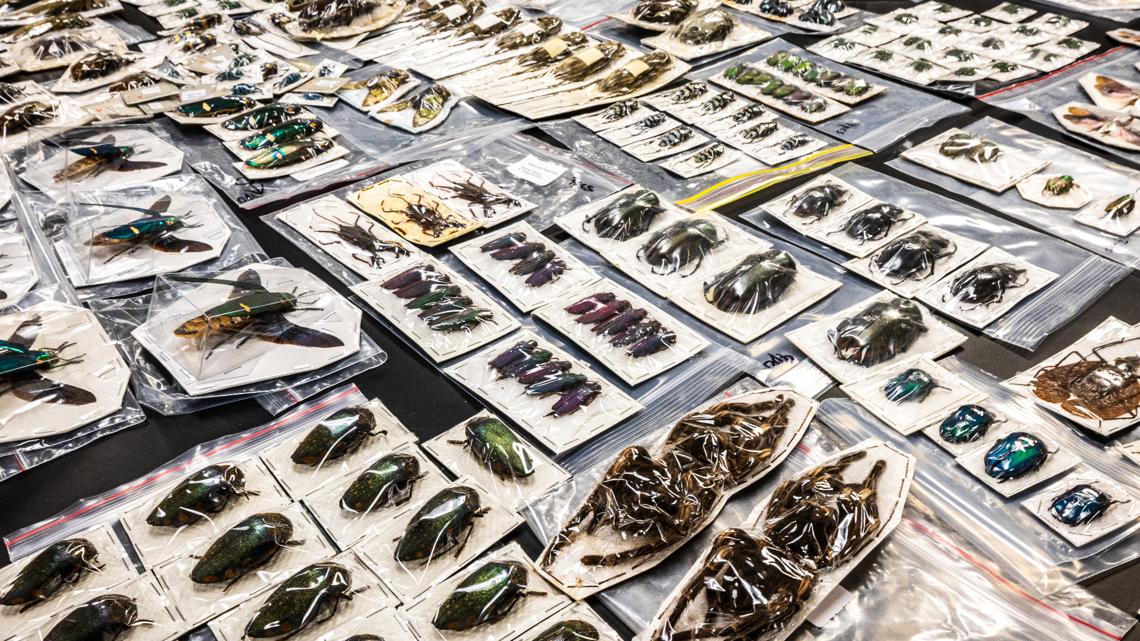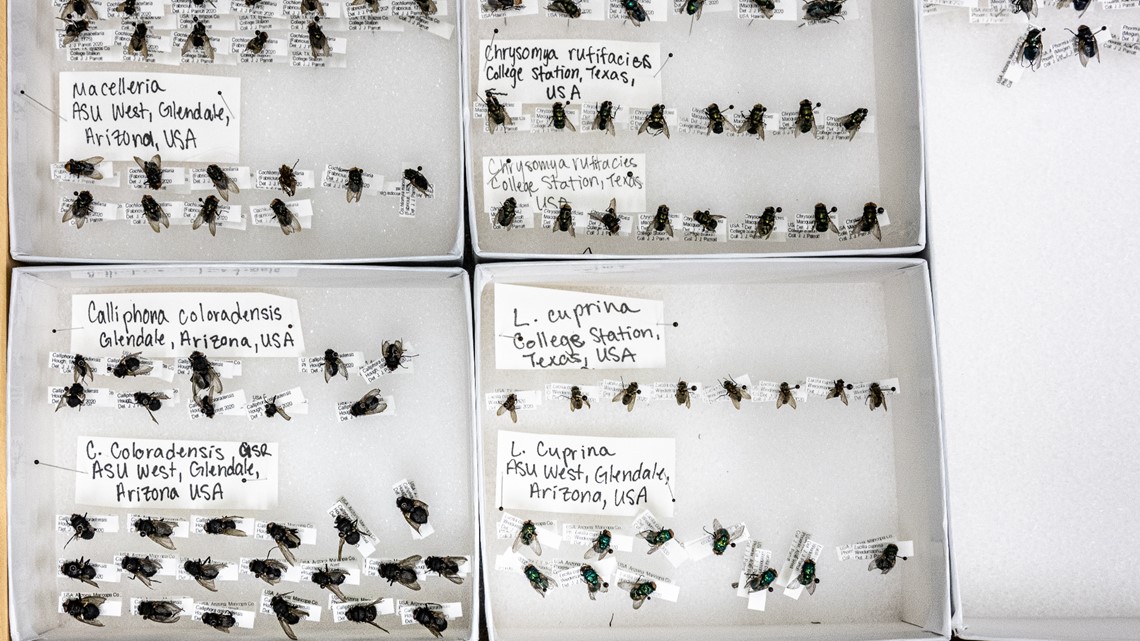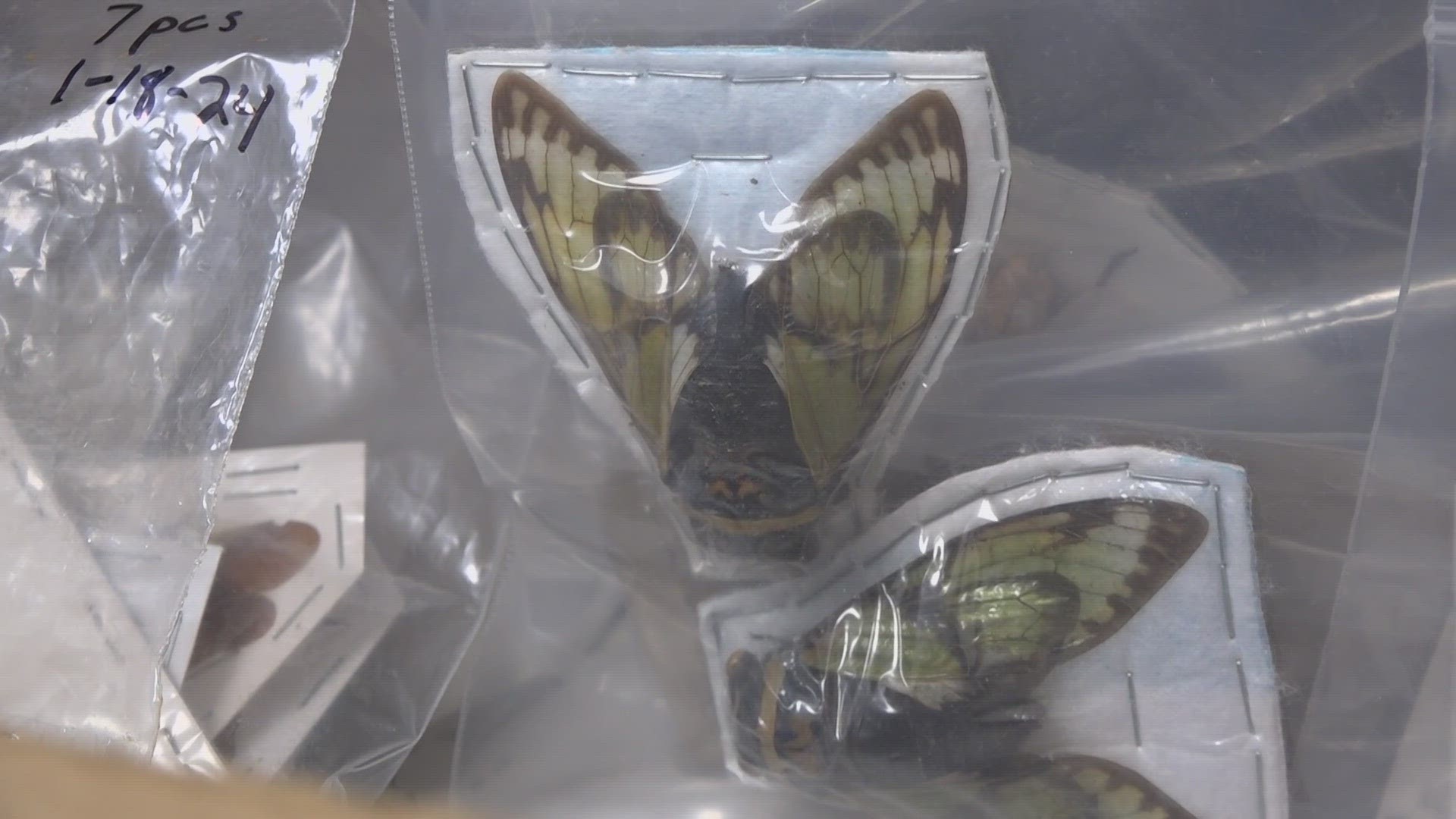GLENDALE, Ariz. — Dr. Lauren Weidner had a bright smile on her face as she explained how criminals would hide bugs in the folds of their clothes to slip them past airport security.
"Say I'm sending you sweatshirts. I might tuck them in between the folds and hope that nobody decides to go through that package. Depending on what insect you're working with, they're small so you can walk places and just kind of sneak them in."
But why in the world would someone need to get insects past TSA — and why would that make them a criminal? It may not be as well known as, say, running drugs or trafficking ivory, but the practice of smuggling illegally poached insects is one of the most widespread animal trafficking operations in the world. And even though some of these bugs can go for over $100,000 on the black market, little is known about how this operation functions.
>> Download the 12News app for the latest local breaking news straight to your phone.


That's where Dr. Weidner and her team of students come in. She's the director of the Forensic Entomology and Wildlife Laboratory at Arizona State University's West Valley Campus. For those (understandably) unfamiliar with forensic entomology, it's the study of how insects and other arthropods can aid in criminal investigation.
Typically, insects are used in forensics to date the age of human remains. But now? The bugs are the victims.
Since the start of the semester, Dr. Weidner studied where these insects are being poached from and how they're being smuggled across country lines. In some cases, the problem is right here on our doorstep.
"When we think about issues with wildlife, a lot of the times we think of it as a distant problem, right?" Dr. Weidner said, "Arizona is a remarkable diversity hub for certain insects. Down south, actually, we have certain beetles that will come out after monsoons and people will come from all over the world to collect them."
The driving force? Collectors.
"The main things we tend to see are collectors, so having them [preserved] in their collections, or if they are transported live, people want them as exotic pets," Dr. Weidner said.
It's a multitude of factors that makes this illegal; whether it's dodging collection permits, trespassing on private land or collecting endangered species off of national parks. In Arizona, most of our federal land requires special permissions to collect insects. Overseas, rare insects are plucked from their natural habitats and shipped illegally through customs.
That's where law enforcement hits a snag. "There's not just one website where you go to and say 'where are insects smuggled?' and 'where are they coming from?'" Dr. Weidner explained. She aims to create that kind of a database.


So far, her team has received over 3,200 samples of trafficked insects to classify, catalogue and determine which ones are most heavily smuggled. A vast majority of the samples come from southeast Asian countries like Indonesia, Laos and Malaysia. But some are from our neighbors in Canada and Mexico.
They're in the early stages of the project and are currently divvying up the categories and native habitats of these insects. That information will then go to investigators with the U.S. Fish and Wildlife Service and other international law enforcement agencies to tell them what areas to focus on.
As the project brings in attorneys, agents and non-profits, Dr. Weidner hopes that these 3,200 bugs are going to make a change.
"They're not just going to sit in a warehouse as stored evidence from an old case, we're going to be able to do something with them."
>> Live, local, breaking. Download the 12News app
12News on YouTube
Catch up on the latest news and stories on our 12News YouTube playlist here.

